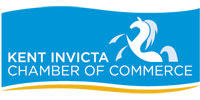A rise in the Living Wage, an end to the public sector wage freeze, more money for health, education, transport and housing - the Treasury has been releasing details of the chancellor's spending plans ahead of Wednesday's Budget.
The announcements have not been without controversy, with speaker Lindsay Hoyle telling MPs it is "not acceptable" for ministers to give briefings to the media before Parliament.
The headline news for businesses is a 6.6% rise in the rate of the living wage - from £8.91 per hour to £9.50, to come into effect from 1 April 2022. The living wage is the minimum wage for all those aged 23 and over. The Treasury has also announced new grants worth £1.4bn to be given to "internationally mobile" companies to invest in UK infrastructure. This includes £345m aimed at increasing resilience for future pandemics.
Despite all the pre-Budget spending announcements, what small businesses are really concerned about is inflation and tax rises, according to a new survey of 1,400 small firms by the Federation of Small Businesses (FSB).
The latest quarterly Small Business Index has found that 62% of small firms do not expect their business performance to improve over the coming three months. In particular, concerns about the tax burden are at a two-year high ahead of the Budget.
The research finds that Treasury plans to increase Class 4 and Employer National Insurance contributions as well as dividend taxation by 1.25 percentage points in the Spring are likely to add to inflationary pressure, cause firms to put the brakes on hiring and discourage investment.
A third of employers (33%) say that they would be forced to increase prices due to the changes. They will also cut their own compensation (24%), recruit less (17%) and scale back investment (16%).
Other key findings include:
- 42% of company directors say the tax changes would inhibit their ability to save into a pension, whilst also causing them to increase their debt levels (9%).
- 41% of sole traders say they will have to increase prices, with 6% saying they'll shut down their business permanently if the NICs hike goes ahead;
- 11% of sole traders say they will "reconsider being self-employed".
The government's own data shows that almost 400,000 non-employing small businesses have already been lost since the start of 2020.
The FSB is calling on the chancellor to increase the Employment Allowance and reduce VAT on utility bills for small businesses in the Budget. FSB national chairman Mike Cherry said: "Small businesses right across the UK are hoping this Budget reflects the government's aspiration to create a low-tax, high-productivity economy.
"As things stand, its planned hike to NICs - which serve as a job tax - will see firms with even less room to manoeuvre when it comes to investment, recruitment and reskilling, whilst leaving many with no choice but to raise prices. The risk of stagflation is very real, but there is still time to act. Increasing the Employment Allowance from £4,000 to £5,000 could make a real difference to the prospects of small employers as we head into an uncertain winter."
The FSB survey has found that 76% of small businesses are facing rising operating costs. "On every front - from inputs, to energy, to recruitment, to shipping, to tax - small businesses are up against it," said Cherry. "With energy costs sky-high, reducing VAT on utility bills for the smallest businesses would provide a measure of breathing space for those really struggling."
Written by Rachel Miller.
Image supplied by HM Treasury on Flickr.
